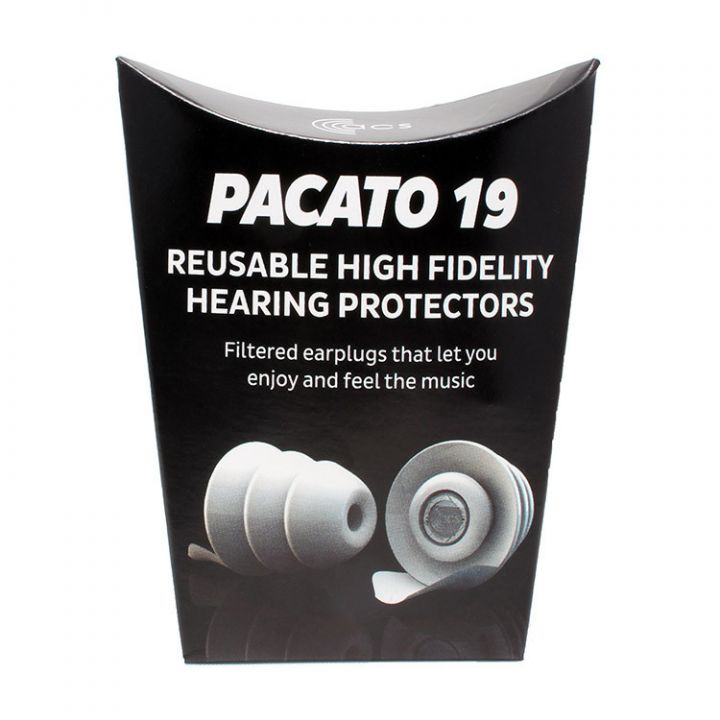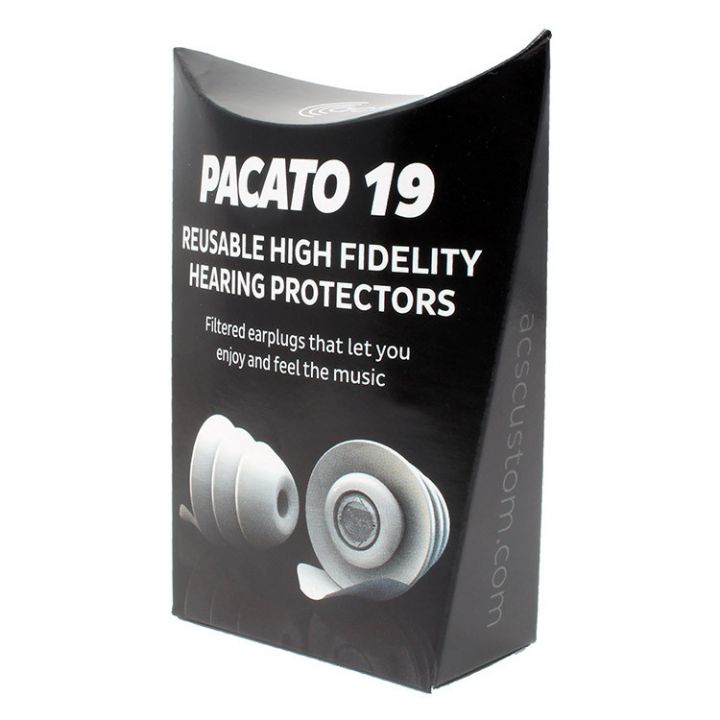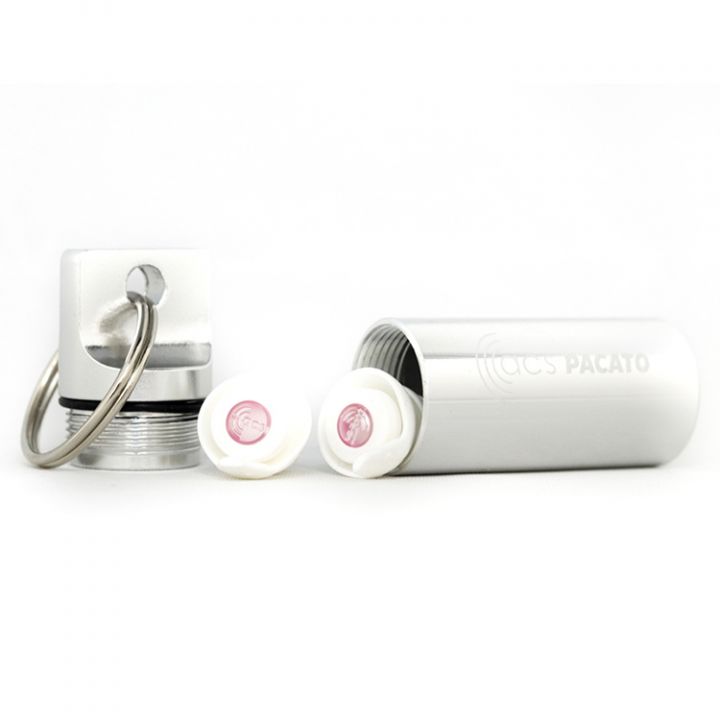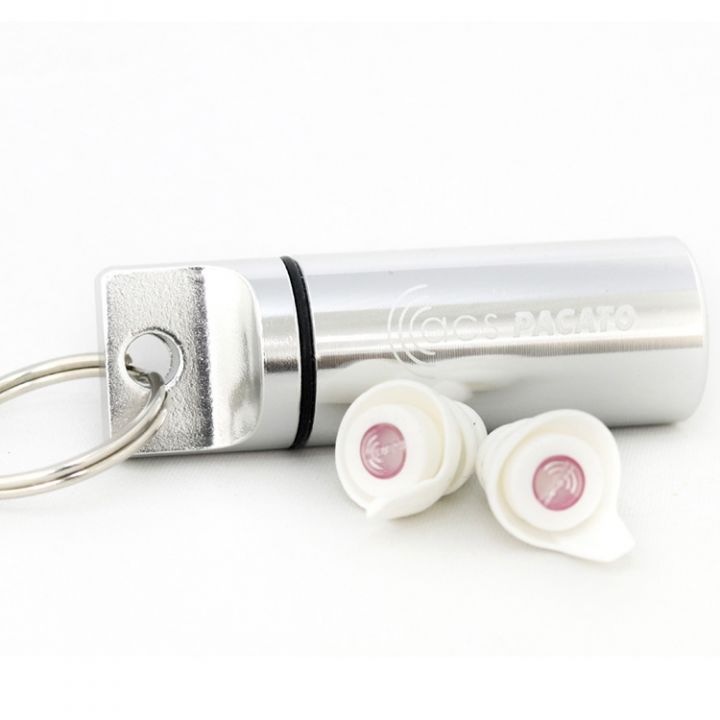Designed for musicians and music enthusiasts, the ACS Pacato earplug is one of the most discreet universal-fit plugs available on the market today. Sitting comfortably in the ear with no protrusion, the Pacato can be worn underneath headsets, or other ear coverings, and in any situation where discretion for the wearer is desired. Always keep the longer end of the ear tip (see picture) between your thumb and index finger as you insert the earplug into your ear. This will leave the longer tip in a position that will help you to remove the earplug afterwards.
Pacato earplugs use a vented design, which offers a flatter frequency response than other earplugs, and an open air passage to the ear in order to minimize occlusion. Occlusion happens when your ear canal is sealed. Try this: block off both of your ear canals with your little fingers, and start to speak. Your own voice will start booming inside your head. Vented designs minimize such an effect.
Pacato earplugs come standard with two sets of differently sized ear tips - medium and large - and one set of audio filters. According to the manual, the audio filters come pre-fitted with the larger ear tips. But this was not the case: audio filters were plugged into the medium pair. As those ear tips won't work correctly without the audio filter fitted, always check if filters are present before wearing your preferred size!
| 60Hz | 125 | 250 | 500 | 1k | 2k | 4k | 8k | 16kHz | ||
|---|---|---|---|---|---|---|---|---|---|---|
| Rated | - | 15.1 | 15.4 | 17.1 | 19.9 | 26.9 | 17.7 | 29.9 | - | NRR 12 |
| Measured | 9 | 9 | 12 | 15 | 15 | 17 | 18 | 25 | 30 | ΔF ±7 |
NRR stands for Noise Reduction Rating. It is a standardized measure expressed in decibels (dB), and represents the overall attenuation offered by the earplug. The higher the NRR, the stronger the attenuation. Differences in the NRR of less than 3 dB between earplugs have no importance in practice.
ΔF represents an important factor for musical applications, as it measures the standard deviation from a spectrally flat attenuation between 60Hz and 16kHz. The smaller the ΔF, the higher the fidelity. ±3dB is virtually inaudible and can be considered as the very best one can get.



